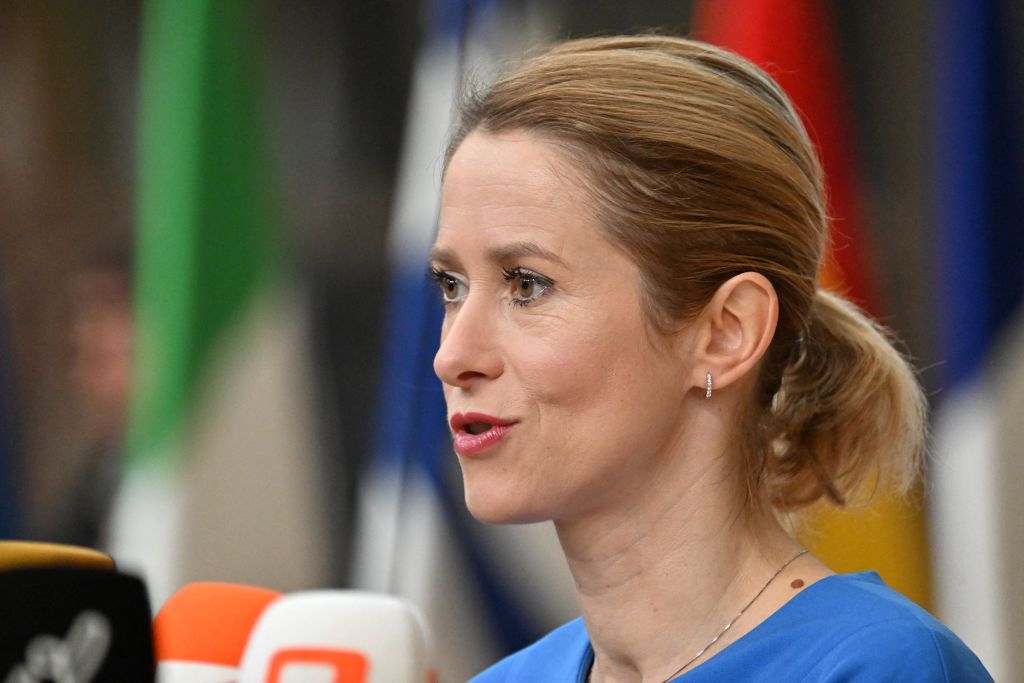- cross-posted to:
- [email protected]
- cross-posted to:
- [email protected]
Kallas argued that the fears of NATO allies about sending troops to Ukraine to train soldiers drawing them into a war with Russia are unfounded. She mentioned that some NATO member states are discussing the possibility of sending military instructors or contractors to Ukraine to train troops and assist with equipment repairs. Kyiv has requested assistance from the U.S. and other NATO countries to train 150,000 soldiers closer to the front lines. Kallas emphasized that it is essential to train Ukrainian troops on their own territory and that if any personnel were to be hurt, it would not automatically trigger NATO’s Article 5 on mutual defense. Macron’s comments in February sparked the debate about the potential presence of NATO troops in Ukraine, but many countries have not ruled out sending troops for non-combat missions such as training the Ukrainian military.
Estonian Defense Minister Hanno Pevkur stated on May 14 that the concept of sending Western troops to Ukraine has not progressed in Estonia or at the EU level due to a lack of clear understanding among allies of the potential outcomes. Macron mentioned that he would consider sending troops to Ukraine in the event of a Russian breakthrough and a request from Ukraine. However, he clarified that such conditions did not currently exist. The U.S. and multiple European allies, along with NATO Secretary-General Jens Stoltenberg, have distanced themselves from Macron’s statement. While some countries have not ruled out the possibility of sending troops for non-combat missions, there is no clear consensus regarding this among NATO allies.
Kallas noted that some countries are already training soldiers on the ground in Ukraine at their own risk. She believes that assisting in the training of Ukrainian troops on their own territory, rather than elsewhere in Europe, will not escalate the war with Russia. Kallas dismissed the idea that if training personnel were to be hurt, those who sent them would immediately invoke Article 5 of mutual defense and retaliate against Russia. The debate surrounding the potential presence of NATO troops in Ukraine has been ongoing since Macron’s comments in February. Despite some countries considering sending troops for non-combat missions, there is no unanimous agreement among NATO allies on this matter.
The discussions about sending military instructors or contractors to Ukraine to train troops and assist with equipment repairs have raised concerns among NATO allies about being drawn into a conflict with Russia. Kallas maintained that these fears are not well-founded and emphasized the importance of training Ukrainian troops on their own territory rather than in Europe. She pointed out that if any training personnel were to be harmed, it would not automatically trigger NATO’s mutual defense clause. Macron’s suggestion of sending troops to Ukraine in certain conditions has not been widely supported by other NATO allies, and the idea has not advanced at the EU level. The debate around the potential presence of NATO troops in Ukraine remains ongoing, with differing opinions among member states.
In conclusion, the issue of sending NATO troops to Ukraine for training purposes remains a topic of debate among member states. While some countries are considering the possibility of sending troops for non-combat missions, others are more cautious due to concerns about being drawn into a conflict with Russia. Kallas emphasized the importance of training Ukrainian soldiers on their own territory and highlighted the lack of consensus among NATO allies on this matter. The discussions sparked by Macron’s comments in February have not led to concrete action, and the idea of sending Western troops to Ukraine has not made progress. As the situation continues to evolve, it remains to be seen how NATO will navigate its involvement in Ukraine and respond to the ongoing conflict in the region.



The world of geopolitics is a world without police, so I agree that the invasion is a war crime, but in practice there is not much we can do that doesn’t make the situation worse.
In my opinion the best we can hope for is peace by means of a balance of power.
The lack of credible enforcement of international law is made very clear by the Iraq war, a war of aggression where the perpetrators were never held to account because the US was powerful enough to prevent that.
I don’t think it’s morally bad to be pragmatic in that sense, if trying to punish Russia leads to nuclear annihilation.
No it doesn’t. They have had plenty of time to push the button. They threatened and threatened and threatened. But they didn’t and they are not going to. The right move now is to squeeze them as much as we can, slice the salami nice and thin with a series of small escalations that by themselves don’t justify a nuclear response, but together meaningfully change the trajectory of the conflict.
And apparently Estonia understands this because it’s exactly what they are doing. Now we all need to get with the program.